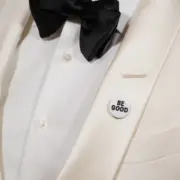The flood will reach your doorstep, too

It took me 18 years to learn how to talk about climate change.
I was 15 the first time I stood in front of my class, heart pounding, trying to explain why coral bleaching should matter to them. I remember the stillness: the polite attention, the rustle of uniforms, the way my voice wavered as I spoke about oceans turning skeletal. When the applause came, it was generous, almost thunderous. But I understood, even then, that it would also be the last time anyone in that room would talk about coral bleaching.
At 15, I already carried the urgency of the crisis like a pulse. I felt it in the rising heat, in the floods that stranded entire cities overnight, in the quiet dread that followed every storm. What unsettled me most wasn’t the scale of the problem; it was the indifference surrounding it. How could others not feel this sense of narrowing time, this fear that the future was dissolving beneath our feet?
What do we stand to lose?
Over the years, I realized that the problem was not ignorance but language. We have been speaking about climate change as though it were a scientific phenomenon rather than a human one. We drown the conversation in data and graphs, when what moves people—what truly moves them—is love and loss.
We should not only be asking, ‘What is science telling us?’ but also ‘Who do we stand to lose if we fail to listen?’
In the Philippines, climate anxiety is not a distant, academic concept. It is a cultural inheritance; an ache passed down through generations who have watched the seas rise and the rivers overflow, who have measured time by the typhoons that mark our lives.
We all remember our first typhoon, don’t we? The first time we sat in the dark for days, praying the skies would quiet down, and hoping clean water would arrive soon. To be Filipino is to live in negotiation with water. The sound of rain is not merely atmospheric; it carries memory, warning, grief. Children grow up knowing that safety is temporary, that tomorrow depends on the weather.
We deserve better
And yet, despite this precarity, we are known for our capacity to care. There is something almost sacred in the way Filipinos extend compassion. So instinctive and uncalculated. Which is why our entanglement with greed and corruption feels so jarring, almost tragic.
How did a culture defined by empathy allow itself to become complicit in stealing its own children’s futures?
Because make no mistake: Climate change does not bow to currency. The only thing separating a gated subdivision from a flooded shantytown is luck. And corruption ensures that luck eventually runs out. The same negligence that diverts funds from flood control to private pockets will not distinguish between classes when the waters rise.
Filipino children deserve better. They deserve to worry about math homework, not about whether their classrooms will be underwater. They deserve to grow up dreaming, not evacuating.
And we know, somewhere in our collective memory, that another way of living is possible. Before colonization, our ancestors wove bayongs, wrapped food in banana leaves, and lived in reciprocity with the land. Sustainability was not a policy; it was a way of being. It was only after we began aspiring to the material excesses of our colonizers that we replaced stewardship with consumption, and measured progress by what we could buy rather than what we could protect.
This is why I believe climate change is not only a crisis of carbon, it is a crisis of conscience.
If we are to confront it, we must learn to speak differently: not with the sterile urgency of scientific alarm, but with the moral clarity of love. Science may guide us toward survival, but love—for each other, for our children, for the fragile beauty of home—is what compels us to act.
Because this was never just about saving the planet. It has always been about saving the place we call home, and remembering who we are when the waters rise.

















